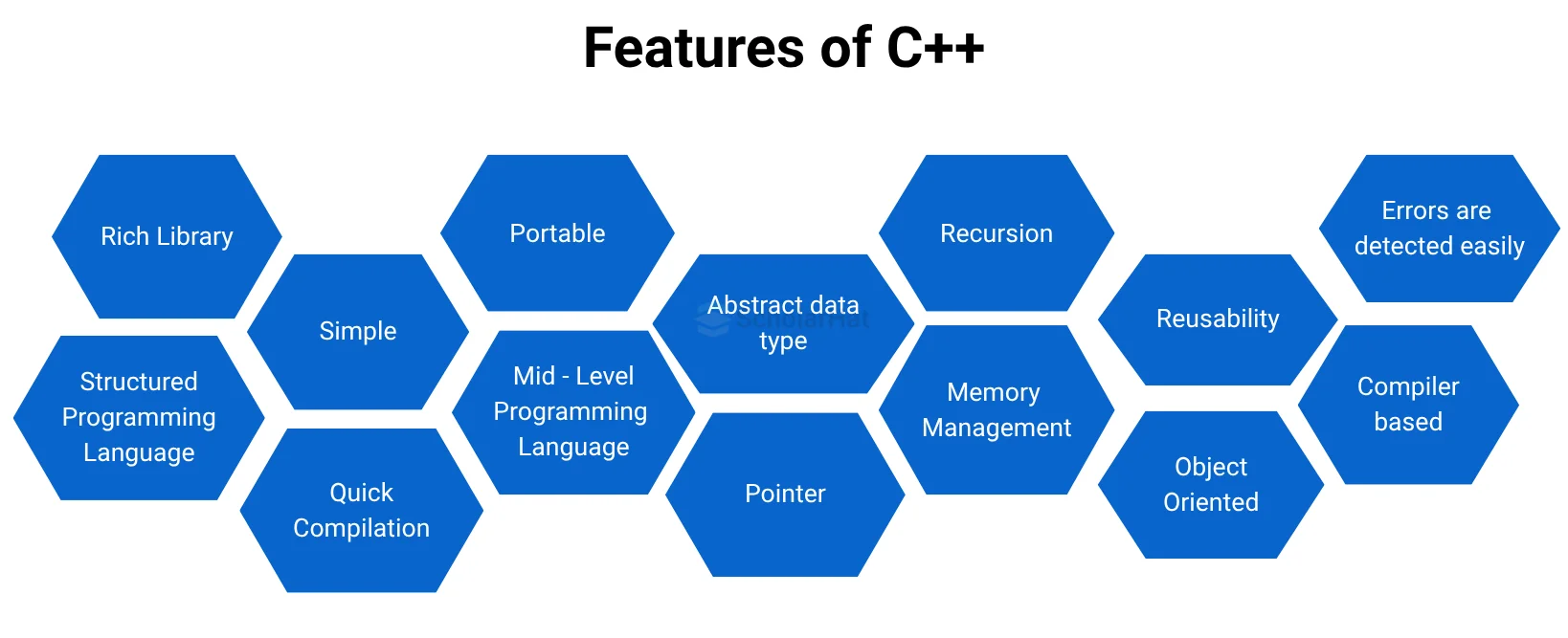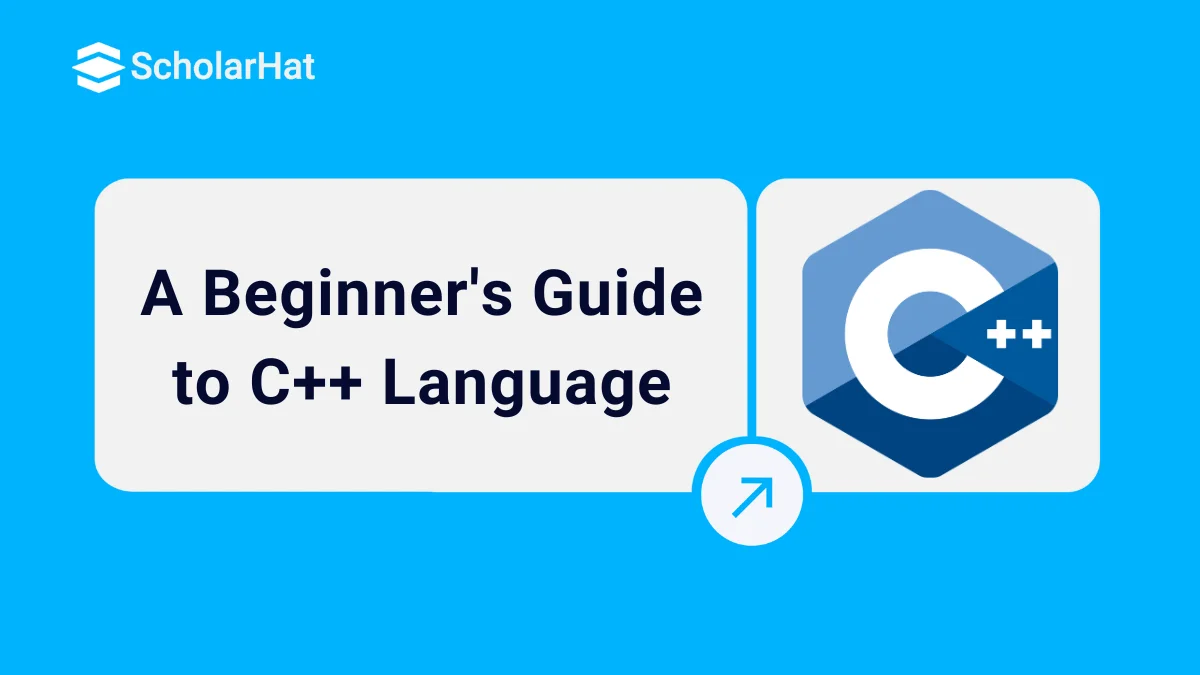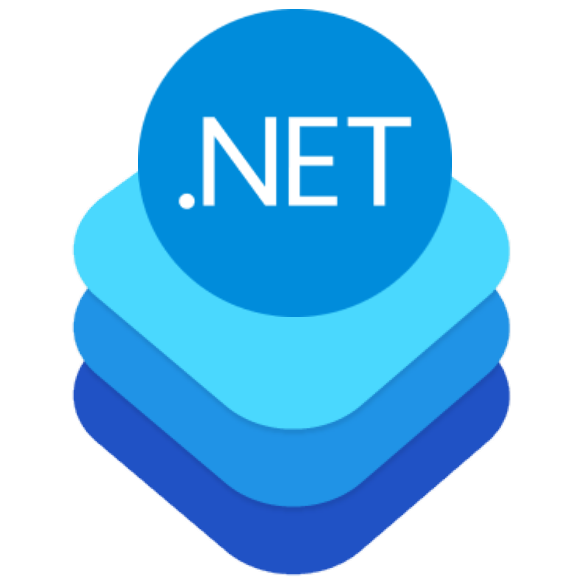A Beginner's Guide to C++ Language
What is C++ language?
Do you have a knack for coding and programming? Are you considering learning the C++ language but don't know where to start? If so, this C++ tutorial is perfect for beginners just like you! C++ is an object-oriented, case-sensitive, free-form programming language that is an extension of C programming. It is a mid-level programming language that encapsulates the features of both low-level and high-level languages.
If you want to become a certified C++ developer, join our C++ Full Course Free.
History of C++ language
The C++ language was developed in the year 1980 by Bjarne Stroustrup at the Bell laboratories of AT&T, which is located in the USA. Let's evaluate the time-frame of the language-
| Language | Year | Developed By |
| Algol | 1960 | International Group |
| BCPL | 1967 | Martin Richard |
| B | 1970 | Ken Thompson |
| Traditional C | 1972 | Dennis Ritchie |
| K & R C | 1978 | Kernighan & Dennis Ritchie |
| C++ | 1980 | Bjarne Stroustrup |
Features of C++ language
The features of C++ language are:

1. Simple- C++ language is a straightforward programming language that gives a structural approach to the program. It breaks the program into various parts and generates multiple data types and library functions.
2. Abstract data type- C++ has a very complex data type, called Abstract Data Type (ADT). This data type is used in classes.
3. Machine-independent or portable- C++ language can be used in various platforms as it is a platform-independent language and only needs some machine-specific changes.
4. Mid-level programming language- C++ can work as a high-level language as well as a low-level language so it is called a Mid-level programming language.
5. Structured programming language- C++ is a Structured programming language so that users can break the program into parts by using functions.
6. Rich Library- C++ language has many built-in functions that help in development. Some libraries are used in C++ language, those are
- <iostream>
- <cmath>
- <cstdlib>
- <fstream>
7. Memory Management- In C++ language many memory management operators help to save memory and improve the program efficiency. These operators use the runtime method to allocate and deallocate the memory. Some memory management operators in C++ language are, new, delete and many more.
8. Quick compilation- In C++ language, the program runs quickly. That is why the compilation time and the execution time of the C++ language are faster than other languages.
9. Pointers- In C++ language pointers are used for memory, structure, function, and arrays. Programmers as well as users can directly interact with the memory by using the pointer.
10. Recursion- C++ programming provides the feature of recursion, in which a function can be called within a function. It generates the reusability of the code.
11. Extensible- C++ language can easily adopt any new feature so it is called an extensive programming language
12. Object-oriented- C++ supports object-oriented programming that includes the concepts of encapsulation, data abstraction,data hiding,etc. It can be done easily by using keywords such as private, public, and protected access specifiers. This feature in C++ makes maintenance and development easier.
13. Compiler-based- C++ language is a compiler-based programming language so no program in C++ can be done without compilation. Compilers for C++ are easily available in the market and take a little storage space.
14. Reusability- C++ programs can be reused because C++ supports inheritance so that any program can be used in different programs. A programmer can save any part of the program in library files and can invoke them to the next program by adding the library files.
15. Errors can be detected easily- Errors can be detected easily because C++ language supports the features of exception handling to handle the error in the program.
Read More - C++ Interview Questions Interview Questions for Freshers
System Requirements for Writing a C++ Program
For installing C++ language on your device there are a few steps to follow:
- A text editor like
notepad,notepad++,sublime text, etc. - Get any compiler like
turbo C++downloaded to your computer - You can also use an
IDE(Integrated Development Environment) to write and compile your code. There are many open-source IDEs likeEclipseandVisual Studio Code.
Summary
C++ is a powerful language that can be used for a variety of purposes. This particular article gives a glimpse of what C++ language is including its features. The article also gives an idea about the history of the language. If you're just getting started, our guide will help you understand the basics and you can also get a C++ certification so that you can begin programming with confidence.
Without advanced React.js skills, you’ll be stuck in low-paying roles. Enroll in our React Certification Course now and break into high-demand jobs.










